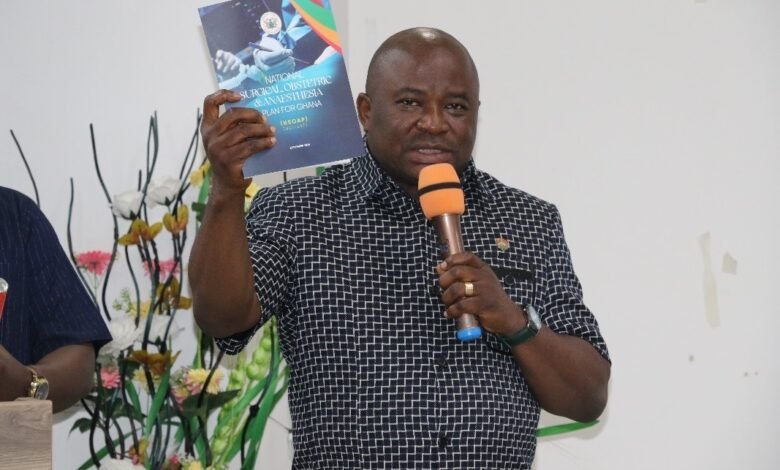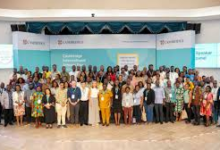$503m comprehensive surgical care policy unveiled

A five-year policy to improve comprehensive surgical care in the country was launched in Accra on Tuesday.
Known as the National Surgical Obstetric and Anaesthesia Plan (NSOAP), it is expected to provide equitable access to safe and high-quality surgical, obstetric, trauma and anaesthesia (SOTA) care, for all persons to promote national development.
Hinged on thematic areas including improving infrastructure, workforce, service delivery, financing and research for an enhanced SOTA care, its implementation is projected to cost the country approximately $503 million over the period.
The NSOAP (2025-2029) places Ghana among countries with a SOTA strategy in line with the World Health Assembly Resolution 68.15 adopted in 2015 for countries to strengthen emergency and essential surgical care as a critical component to achieving universal health coverage (UHC) by 2030.
Making a presentation on the need for an NSOAP in Ghana, the Chief Executive Officer of the Korle-Bu Teaching Hospital and member of the Technical Working Group, Dr Opoku Ware Ampomah, said the policy was timely to focus attention on surgical care as an important aspect of the healthcare system.
He stated that currently, Ghana was only doing 30 per cent of all surgical operations required across the country mainly due to under-tooling, inaccessibility, inadequate human resource and cost of care.
“The WHOA recommends a minimum of 20 SOTA physicians per 100,000 but Ghana is doing six SOTA physicians per 100,000 and these professionals are unevenly distributed across the country with inadequate specialists at the district levels.
Trauma, for instance is accounting for a huge number of deaths. It is one of the silent epidemics that’s happening because if you look at the number of deaths that we have from trauma in a year, it exceeded the deaths from COVID and it is actually taking out people who are in their prime productive years so this plan comes at a very great time,” he stated.
A Deputy Minister of Health, Alexander Akwasi Acquah, launching the document said, the Ministry considered the NSOAP as a vital document aimed at primarily improving the health outcomes of Ghanaians particularly in the area of surgical care, obstetrics, and anaesthesia services.
According to him, the plan was also significant to addressing access to social care by targeting investments in infrastructure at the primary, regional, and national levels of healthcare delivery.
In view of that, the Deputy Minister explained that implementation of the NSOAP would be coordinated across these three levels through a steering committee with leadership at the various levels of health care and ultimately by the sector Minister.
“The plan is to be implemented not as a standalone plan but integrated into national policies as it finds expression in existing policies and strategies of the Ministry, including the Health Sector Medium-Term Development Plan and the National Health Policy,” he explained.
Mr Acquah called for multi-stakeholder collaborations, including public-private partnership and strong coordination at all levels of the health system for effective implementation of the NSOAP.
Dr Ruben Ayala, the Chief Policy and Advocacy officer at Operation Smile, a global non-profit medical organisation which financed the realisation of Ghana’s document nine years after its proposal, called for teamwork to ensure effective implementation and desired outcomes.
BY ABIGAIL ANNOH




